|
Today is the first day of Meskerem, the month that marks the start of Ethiopia’s 13-month calendar. The new year is usually a time of joy and hope for new beginnings - but it’s being celebrated amid concerns about the country’s peace and stability. Yohannes Gedamu suggests that these concerns could be allayed if Prime Minister Abiy Ahmed’s government commits to fostering a true spirit of reconciliation and national unity.
Pope Francis recently visited Madagascar, Mozambique and Mauritius. This was an important trip, given that Africa has the world’s third largest Catholic population, after the Americas and Europe. But, writes Joseph Hellweg, despite its huge presence on the continent, the church faces some serious challenges across Africa, among them the massive growth of Pentecostalism.
WhatsApp is more than just a messaging platform: it’s a tool that can be used for good or to spread disinformation and propaganda. This was certainly the case during Nigeria’s recent elections. In today’s episode of Pasha Nic Cheeseman explains how this played out and the lessons it holds for future African elections.
|
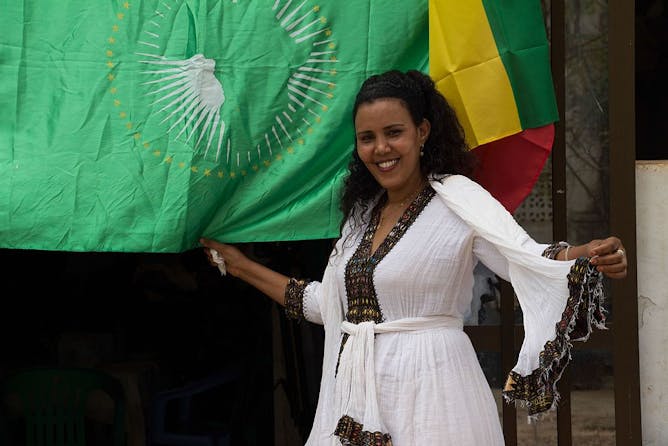
A woman holds the flags of the African Union and Ethiopia during celebrations to mark the Ethiopian New Year
Sabir Olad/Wikimedia Commons
Yohannes Gedamu, Georgia Gwinnett College
Amid New Year celebrations in Ethiopia, questions still linger around the possibility for sustained peace and stability.
|
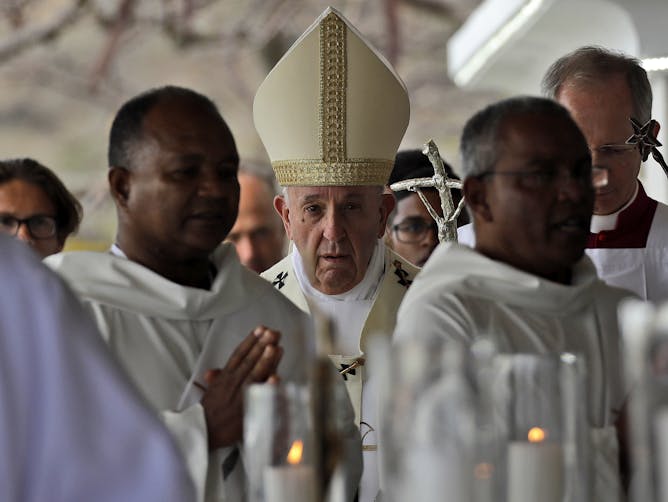
Pope Francis at the Monument Mary Queen of Peace, in Port Louis, Mauritius on Sept. 9, 2019.
AP Photo/Alessandra Tarantino
Joseph Hellweg, Florida State University
Pope Francis recently completed a tour of three African nations. His visit needs to be understood in context of the church's long history in Africa and its modern-day difficulties.
|
Health + Medicine
|
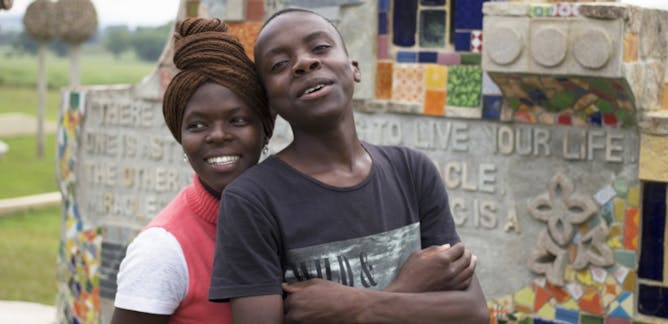
Franziska Meinck, University of Edinburgh; Heidi Stöckl, London School of Hygiene & Tropical Medicine; Marija Pantelic, Brighton and Sussex Medical School
There are a number of effective interventions to prevent gender-based violence among adult women and men at risk of HIV infection. But little is known about the effectiveness of these in young people.
| |
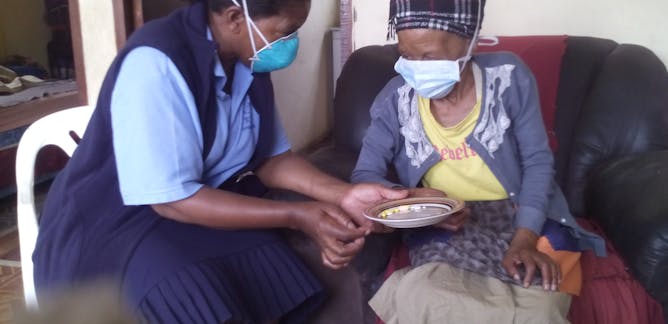
Helen Schneider, University of the Western Cape
Top-down reforms like those proposed in the NHI Bill need to be complemented by a bottom-up process of health system strengthening.
|
|
|
Podcasts
|
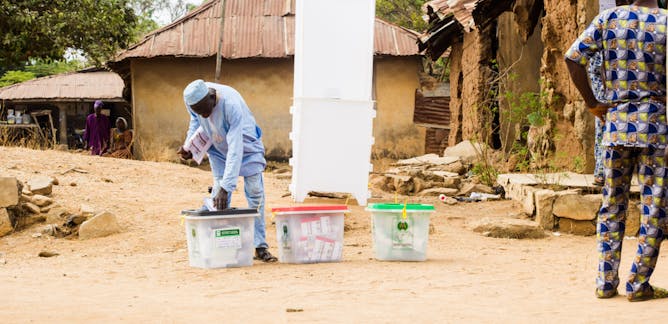
Ozayr Patel, The Conversation
WhatsApp can amplify and complement a candidate’s ground campaign. But it cannot replace it.
| |
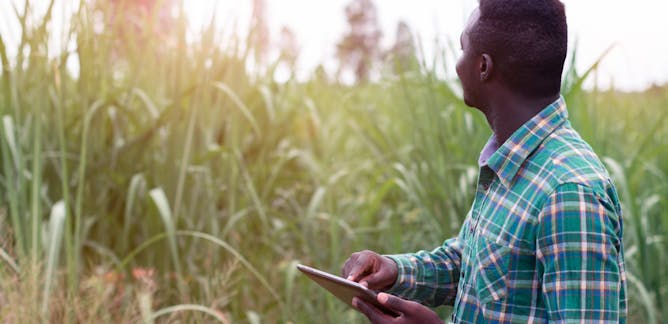
Ozayr Patel, The Conversation
Over the past two decades digitisation has steadily transformed African farming.
|
|
|
From our international editions
|

Michael J. I. Brown, Monash University
Why do astronomers believe there's dark matter when it cannot be directly detected? Lets look at the evidence, and see what dark matter's presence means for our universe.
| |

Evangeline Mantzioris, University of South Australia
A new study has found a vegetarian diet is associated with a reduced risk of heart disease, but linked to an increased risk of stroke. This is how we should – and shouldn't – interpret the results.
|
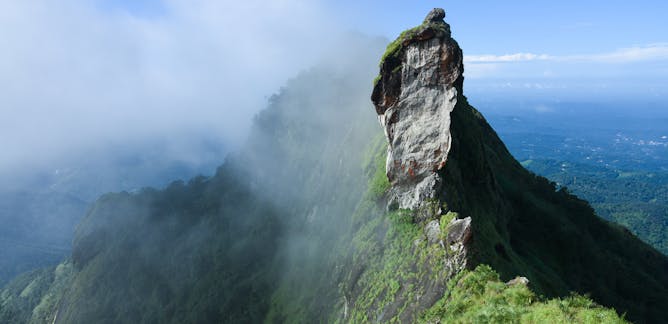
Gayathri D Naik, SOAS, University of London
The Western Ghats are a global biodiversity hotspot, but urgently need better legal protection.
| |

Imko Meyenburg, Anglia Ruskin University
After a decade of nearly uninterrupted growth, the German economy is stuttering.
|
|
|